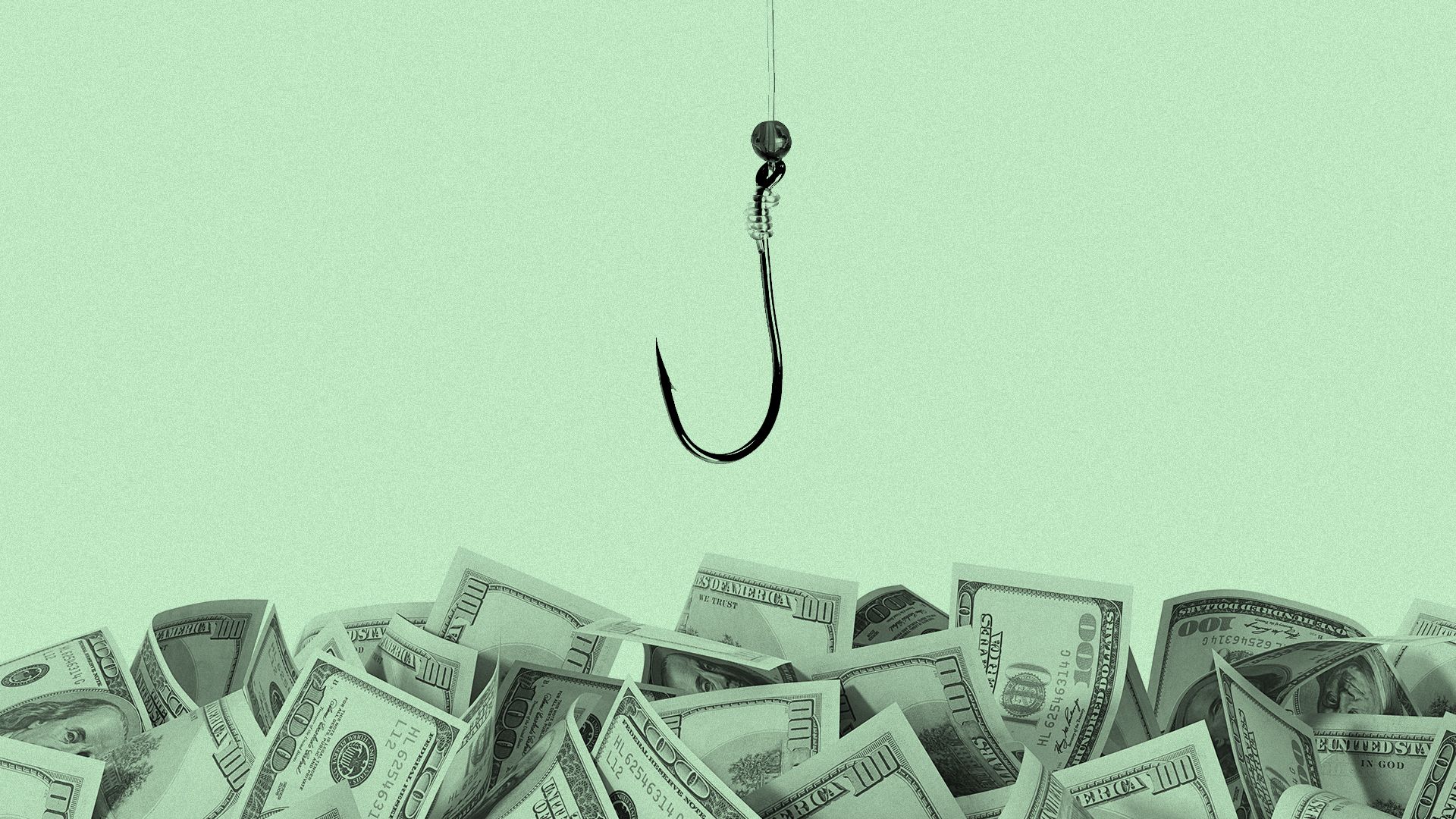Investors are missing out on the stock market rally
Add Axios as your preferred source to
see more of our stories on Google.

Illustration: Rebecca Zisser/Axios
The U.S. stock market is up almost 20% this year, but investors have missed out on much of the rally. They've sold equities and piled into bonds and money market funds — effectively low-yield savings accounts — largely out of fear.
What's happening: Institutional money managers and retail investors around the world have pulled a net $140.6 billion out of equity funds in 2019, according to data from Lipper, which tracks $49.1 trillion of assets.
- The "Twilight Zone" environment, in which equity prices have risen despite net selling of stocks by investors, is taking place all over the world.
- Investors have bought bonds — a net $255.5 billion so far this year — even though more than $13 trillion of bonds currently hold negative yields, meaning investors lose money by holding them.
What it means: "People don't trust the stock market," Emily Roland, head of capital markets research at John Hancock Investment Management, tells Axios. "I'm more concerned about that than I am about the FOMO trade."
- "We're seeing everybody embrace safety, which is fine, but from a long-term investing diversification standpoint, it doesn't end up working in your favor."
Details: Lipper's data shows a strong investor preference for safety, as investment grade and short-term government bonds have seen significant inflows, while risky high-yield — or junk — bonds have seen far less.
The returns have been just the opposite of the flows. MSCI's index of equity markets around the globe has risen 16.7% year to date, and MSCI's U.S. index is up 18.9%. High-yield bonds have delivered 9.5% returns for investors, according to Lipper, compared to investment grade bond funds, which have seen 6.2% return.
- Safe short-dated government bond funds have returned 2.4%, year-to-date, data shows.
- Investors also have invested a net $148.6 billion into money market funds that collectively yielded less than 1% this year.
Between the lines: "This has been a very unloved bull market by investors,” Roland says. "That's another reason, though, maybe it has some legs left."
What's next? The second half of the year looks to present many of the same potential risks and possible upside as the first.
- June's jobs report showed continued strength in the labor market.
- Markets are expecting more easy monetary policy from central banks.
- Slowing trade and global growth data, as well as geopolitical tensions, continue to weigh on the outlook.
Go deeper: Global economic whiplash
